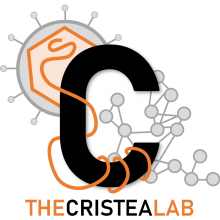Sirtuin 7 plays a role in ribosome biogenesis and protein synthesis
Type
It has been shown that SIRT7 regulates rDNA transcription and that reduced SIRT7 levels inhibit tumor growth. This anti-tumor effect could be due to reduced Pol I activity and perturbed ribosome biogenesis. In this study, using pulse labeling with RNA and amino acid analogs, we found that SIRT7 knockdown efficiently suppressed both RNA and protein synthesis. Surprisingly, SIRT7 knockdown preferentially inhibited protein synthesis over rDNA transcription, whereas the levels of both were reduced to similar extents following Pol I knockdown. Using an affinity purification mass spectrometry approach and functional analyses of the resulting SIRT7 interactome, we identified and validated SIRT7 interactions with proteins involved in ribosomal biogenesis. Indeed, SIRT7 co-fractionated with monoribosomes within a sucrose gradient. Using reciprocal isolations, we determined that SIRT7 interacts specifically with mTOR and GTF3C1, a component of the Pol III transcription factor TFIIIC2 complex. Further studies found that SIRT7 knockdown triggered an increase in the levels of LC3B-II, an autophagosome marker, suggesting a link between SIRT7 and the mTOR pathway. Additionally, we provide several lines of evidence that SIRT7 plays a role in modulating Pol III function. Immunoaffinity purification of SIRT7-GFP from a nuclear fraction demonstrated specific SIRT7 interaction with five out of six components of the TFIIIC2 complex, but not with the TFIIIA or TFIIIB complex, the former of which is required for Pol III-dependent transcription of tRNA genes. ChIP assays showed SIRT7 localization to the Pol III targeting genes, and SIRT7 knockdown triggered a reduction in tRNA levels. Taken together, these data suggest that SIRT7 may regulate Pol III transcription through mTOR and the TFIIIC2 complex. We propose that SIRT7 is involved in multiple pathways involved in ribosome biogenesis, and we hypothesize that its down-regulation may contribute to an antitumor effect, partly through the inhibition of protein synthesis.

